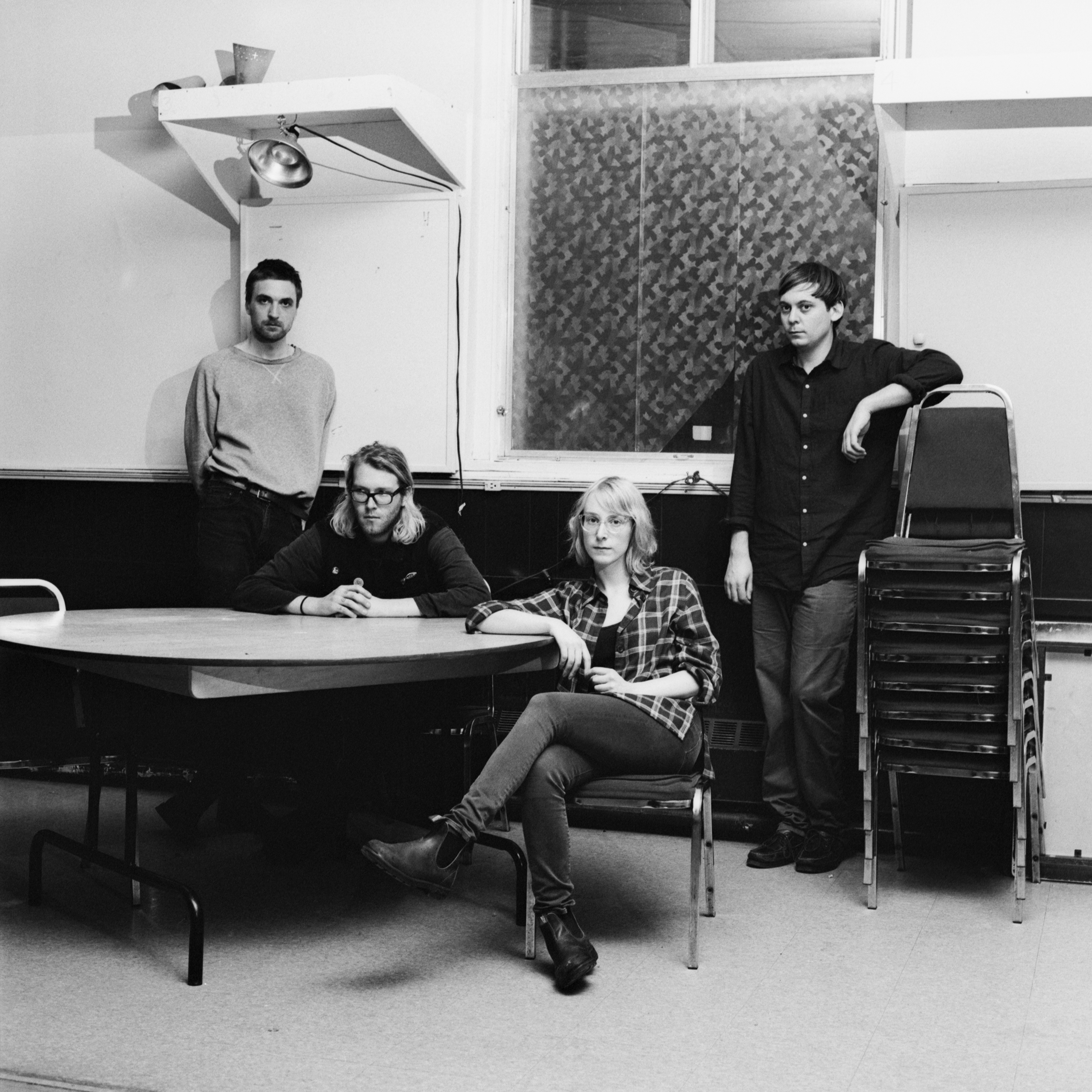If there’s been one thing that has stamped Deliluh as local DIY legends, it was their gig in an abandoned subway station. A story crammed with such rock provocation would arouse any interviewer’s fasciation and Knapp certainly isn’t hesitant to oblige. “There’s only two decommissioned subway stations in North America,” he says. “I think the other’s in LA or something. It was used for about a year in the fifties, but some construction plans got scrapped so the whole thing got ditched. People use it for various events and movie sets now. Apparently Michael Caine had some bullshit party there.”
Recognising the potential of such a chasm-like performance space, Knapp didn’t delay getting to work. “I realised the person who ran the Music Advisory Council was also the chair of the Toronto Transit Commission, so naturally I just started hammering this guy with emails.” Of course, convincing someone to allow a performance three storeys beneath ground was bound to be met with some bureaucratic resistance, but Knapp had a trick up his sleeve. “The whole ‘venue crisis’ thing was really starting to heat up and the media were bashing City Hall for exacerbating the situation. I recognised that these guys were probably hurting for some decent press so I thought it would be a good opportunity for them to flex and respond to some of the negative claims.” He was right. After managing to persuade the police, fire department and practically every government official in Toronto to cooperate, Deliluh performed in the reverberated gloom, establishing themselves further into local DIY mythology.
Canadian post-punk sounds remarkably cold. I’ve listened to far too much Ought, Women and Preoccupations to know that. Deliluh are no exception. “The Winter here is pretty biting,” says Knapp. “It prevents people from going out or doing anything and I think that sound of isolation is a big thing for Canadian musicians. I’ve been writing a lot about the human condition and the ways in which we fall short. I think we’re constantly fighting against our worst enemy. Ourselves.
“I’ve been trying to remove myself from the first person and explore ideas through fiction,” he says. “There’s a song on our most recent release called ‘Salford’, which is about an abandoned town stuck in a cycle of manmade exploitation, but the place just keeps falling further into disrepair. It also offers the perspective of a woman whose husband is overseas fighting a war. She’s pregnant and thinking about whether she’ll make it without the support of her partner. These two coinciding and instinctual things really reflects a lot of what I’m writing about.”
Deliluh have cultivated their own unique hometown scene, but being a group in Canada makes branching out no easy business. “Everything is so far away. If you want to go on tour, you have to drive for hours and hours to get between towns. When you eventually get there, there might not even be a whole lot of people at your show because of how separated everyone is.” A little frustrated, Knapp goes on: “There’s a lot of sacrifice and I think a big misconception is that Canadian bands can just tour America whenever they like. The visa situation is incredibly expensive and the risk of sneaking down there is insane. It’s something very tricky for Canadian musicians to navigate. Everyone here feels isolated from a lot of different places.”
As a result, Knapp has decided to do the obligatory cool art-rock thing and move his band to Berlin, just temporarily to realise a potential new fanbase. “We want to just freeze our lives in Toronto for a little while so we can come out to Europe and play around for a bit to see what happens. We figured there are all these places to explore and there could be a new and very exciting market for us. We’re still figuring out the next time we’re going to be able to slot in playing the UK, but I expect it should be pretty soon.”
